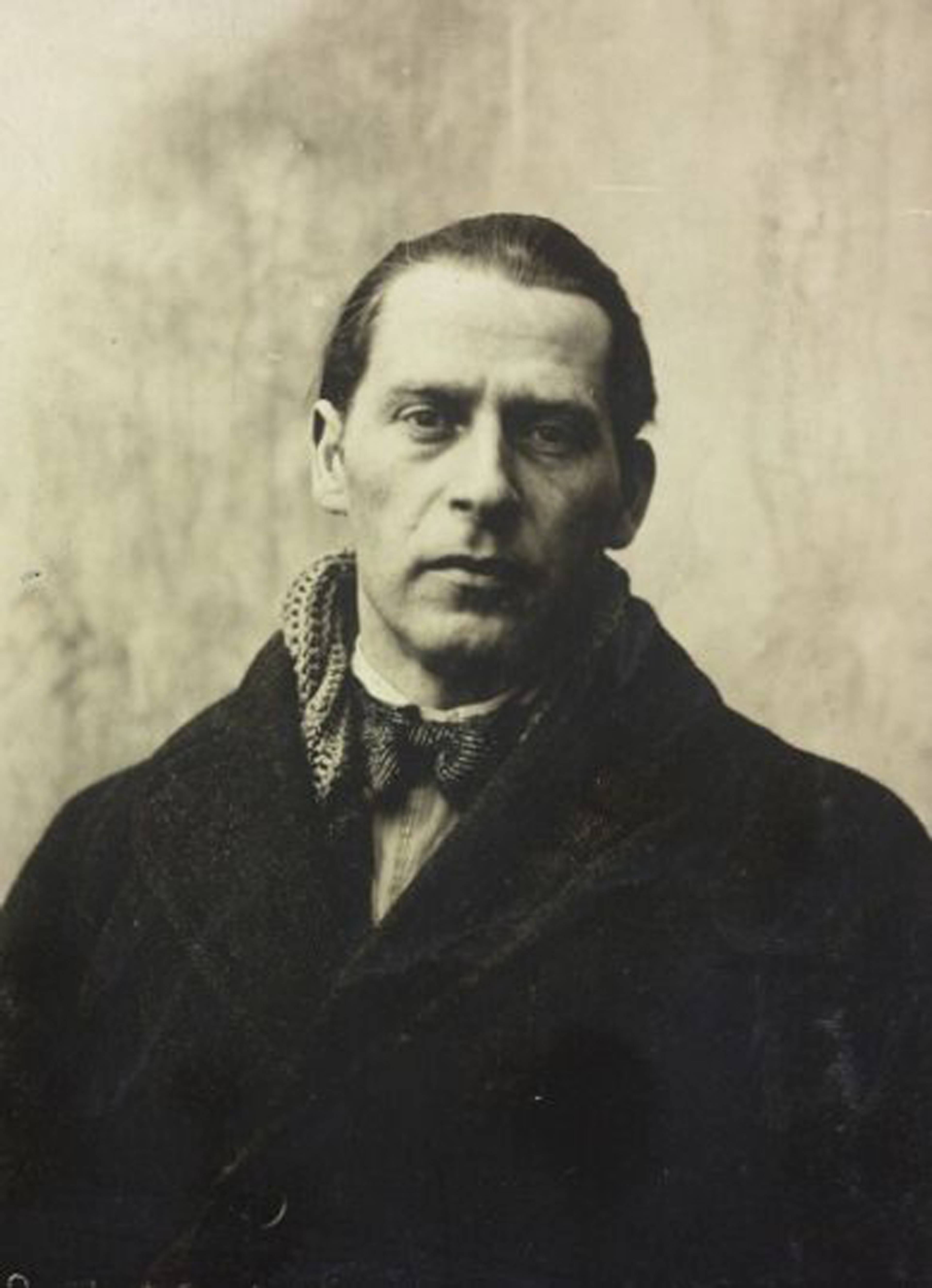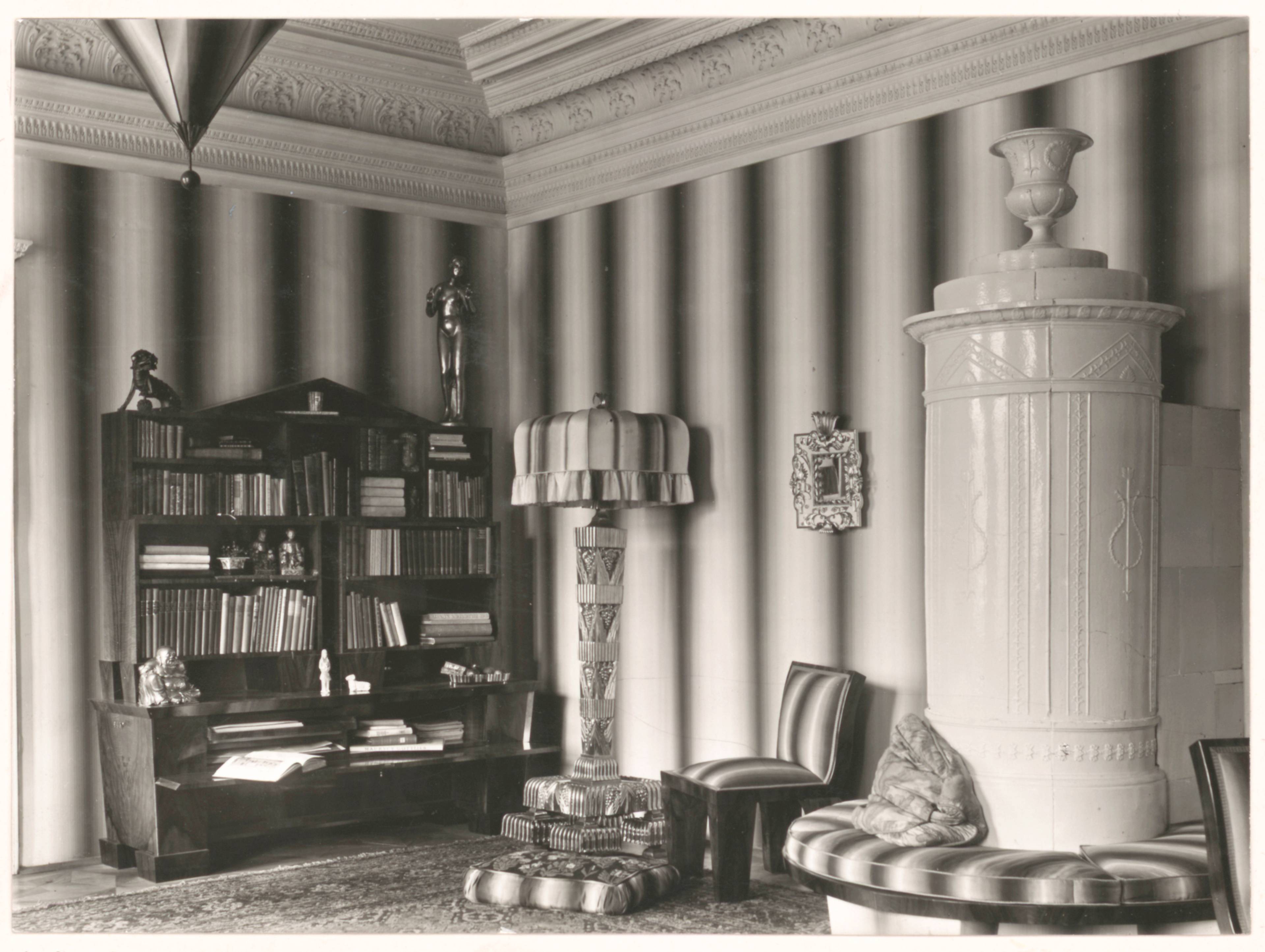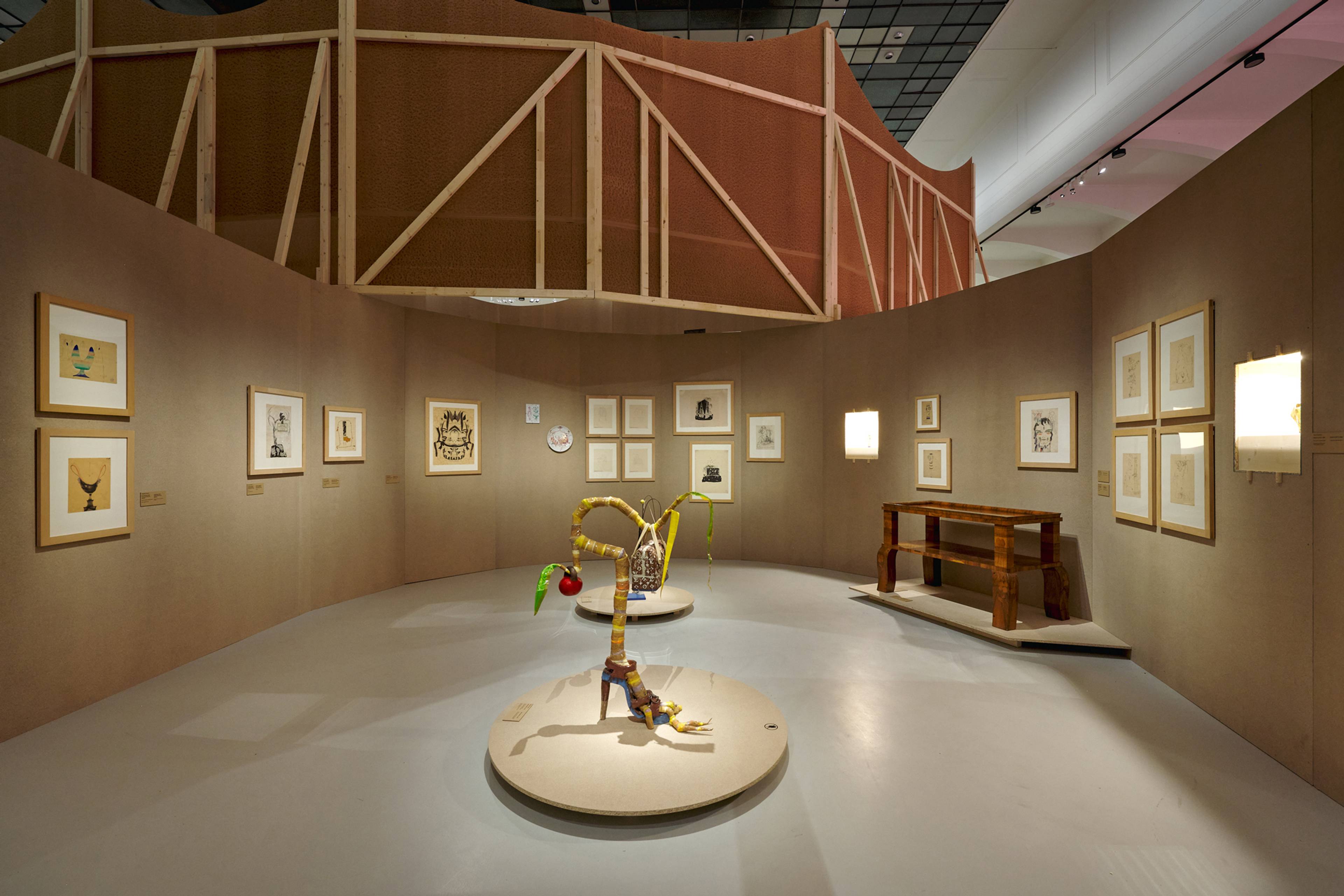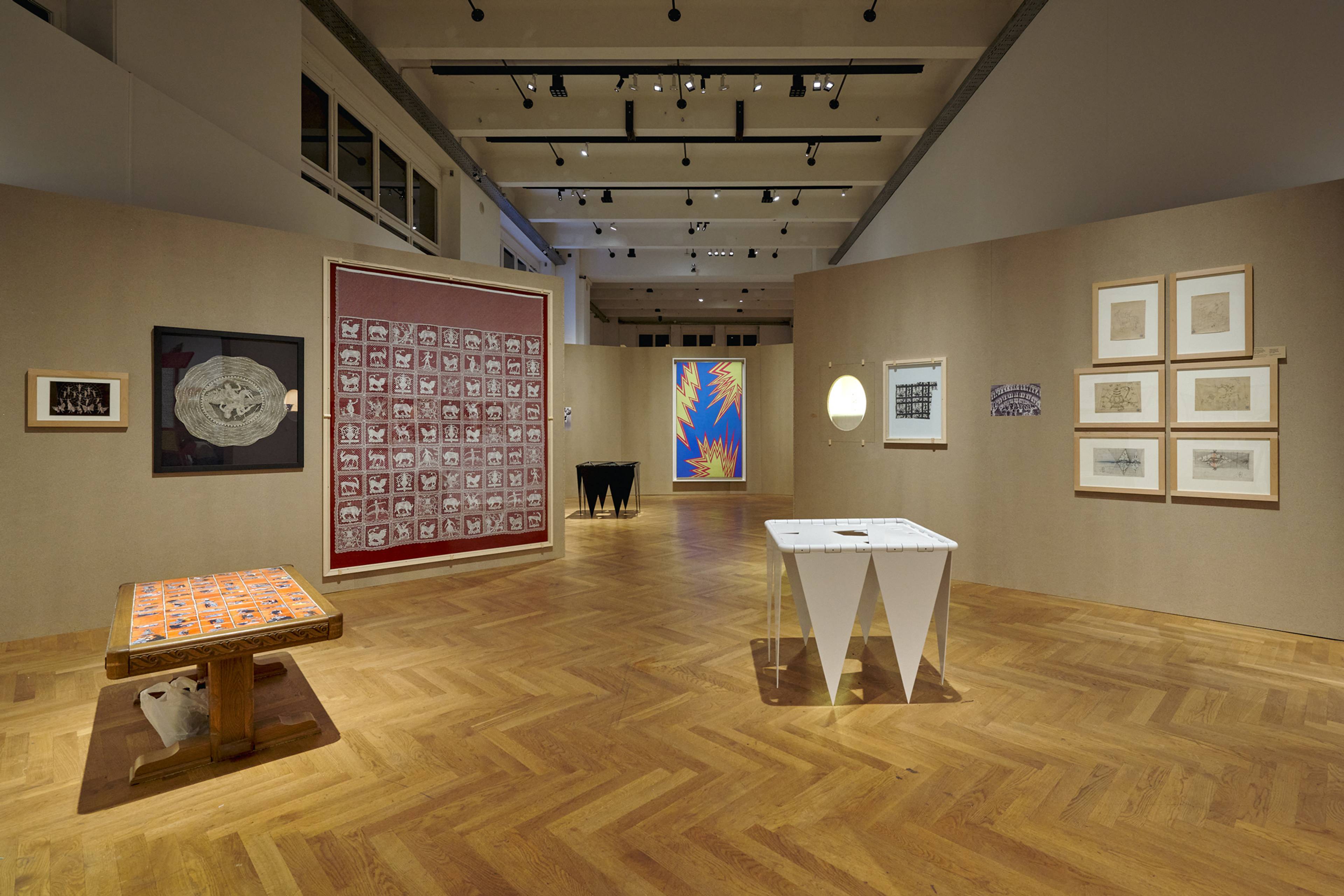The “ornamental genius” Dagobert Peche (1887–1923) virtually blew apart the stylistic idiom of the Wiener Werkstätte (WW): He responded to the geometry of the WW’s founders Josef Hoffmann and Koloman Moser with opulent and poppy decorations gleaned from nature. He lent practical objects a complexity that intentionally undermined logic and utility. For the first time in over a quarter of a century, the MAK is dedicating a major exhibition to this visionary and enfant terrible of the Wiener Werkstätte. Some 650 objects in “PECHE POP: Tracing Dagobert Peche in the 21st Century” demonstrate Peche’s unmistakable cosmos and the fascinating impact of his work on 20th and 21st-century design: from Art Deco to Postmodernism to the present day.
It was Josef Hoffmann who called Dagobert Peche “the greatest ornamental genius Austria has produced since the Baroque” – according to the journalist Berta Zuckerkandl in her obituary of the artist in 1923. It is true that Peche steered the WW’s stylistic idiom in a completely new direction: away from geometry and toward opulent decorations gleaned from nature. He worked with a wide range of materials – silver, glass, ceramic, leather, and paper – designing jewelry, furniture, and exhibition displays, as well as sensational fabric patterns.
Views of “PECHE POP: Tracing Dagobert Peche in the 21st Century,” MAK, Vienna, 2024
Dagobert Peche composed his entire, extremely personal, oeuvre in just over a decade out of leitmotifs in which his home region and training played a significant part. Consequently, the MAK exhibition does not approach Peche’s universe chronologically but thematically. The chapters bear names like “Arcadia,” “Boudoir,” “Metamorphosis,” and “Uncanny.”
Born in St. Michael in the Lungau region of Salzburg in 1887, Dagobert Peche grew up in Upper Austria before graduating from high school in Salzburg in 1906. Despite actually wanting to become a painter, he obeyed his father’s wishes and studied architecture in Vienna at the Technische Hochschule (Technical College) and under Friedrich Ohmann at the Academy of Fine Arts. As a proponent of a romantic and painterly style, Ohmann encouraged Peche’s emotional approach to objects and his talent for drawing.
Revealingly, a journey to England with the architectural society was reflected not in structural designs but in cycles of graphic art in which the influence of Aubrey Beardsley is conspicuous. On a trip to Paris in 1912, Peche discovered the collections of decorative art at the Louvre and upon his return created his “First Chair” in the Rococo style.
Dagobert Peche, desk for Eduard Ast, 1922, walnut wood, solid and veneered on softwood. Execution: Johann Jonasch; loan from Ernst Ploil. © MAK/Georg Mayer
Dagobert Peche, design for the Wiener Werkstätte wallpaper Pfeil (Arrow), 1921, pencil, gouache on paper. © MAK
With Peche, artistic influences always led to solutions that reveal these references while nevertheless giving rise to something entirely his own. What fascinated him about Beardsley was the black-and-white technique—not the bizarre scenes but their props: the curtain, the tassel, the candlestick. He combined the Rococo he had admired at the Louvre with Classicism to produce a black salon cabinet whose massive carcass is reduced to two dimensions by a gold floral pattern (salon cabinet for Wolko Gartenberg, 1913).
Playing opposites off against each other is a recurrent device throughout Peche’s oeuvre and is part of the major theme of “Metamorphosis”: whether it be transforming space into surface and vice versa or mutating materials (wood looks like fabric, tin like ceramic, metal like paper), ornaments (as a wallpaper motif, wooden decoration, or printed on silk), or the nymph Daphne from Greek mythology. She was the favorite character of Peche, who could never be an architect despite his training because architecture requires constancy and transformation means movement.
Dagobert Peche, brooch, 1918, gold, pearl. © MAK
Dagobert Peche, bouquet of paper flowers, c. 1920, paper, wire, gold edging and sequins. © MAK
Dagobert Peche, Vase Liebeszauber (Love Magic), 1922, light biscuit, colorfully glazed. Execution: Gmundner Keramik; loan from Ernst Ploil. © MAK/Christian Mendez
Consequently, ephemeral architecture – exhibition displays – was Peche’s métier. After Josef Hoffmann brought him to the WW as a designer in 1915, Peche mounted the “Mode-Ausstellung 1915/16” [Fashion Exhibition 1915/16] at the former Austrian Museum of Art and Industry (today’s MAK). He transformed the Columned Main Hall into a white and pale pink tulle world with mysterious dark ambulatories. A short time later he became the director of the new WW branch in Zurich and designed the shop there as a rendition of Daphne with hanging garlands of fruit and motifs of sprouting leaves.
Peche returned from this Swiss idyll to postwar Vienna in 1919, where he had to move into a dilapidated apartment. A victim of Vienna’s housing shortage, the architect of luxury homes had to live in a ramshackle dump. It was now at the latest that the uncanny emerged in Peche’s work: The shapes solidified, the ornament became austere, sharp-edged; he described himself as a “mummy that had long laid still in a sarcophagus, covered in paper, swathed in dead flowers made of brocade ….”
Both c. 1920
Yet the “artist-craftsman,” as Peche’s biographer Max Eisler so aptly called him, still had great successes to achieve before he died of cancer in 1923. With his monumental cabinets at the Kunstschau in 1920 he divided the critics, who either spoke of “the most unbridled ludicrousness” or of his decorative instinct vitalizing homes in the most refreshing manner.
He enjoyed enormous success in 1922 with a collection of wallpaper for the WW, executed by the Cologne-based company Flammersheim & Steinmann. Here Peche once again pulled out all the stops, layering diverse patterns on top of one another or inventing “elementary” motifs like Das Wasser [The Water] or Der Stein [The Stone]. His partiality for ombré, a gradation of color between dark and light, characterized his last home decoration jobs, such as for the Viennese architect, designer, and art collector Wolko Gartenberg.
In the very personal world that Peche created, he celebrated “endlessly tall rooms,” the curtain as a subtle design element, the metamorphosis of figure, space, and object into flowers and leaves. Functionality was sacrificed to this end—an approach that was as vehemently criticized as it was defended: The narrative, playful, dreamy helped people forget the misery of war; Peche was declared an artist and thereby exonerated.
Dagobert Peche, interior of the Gartenberg apartment, 1921/22, photograph. © MAK
The playful side of Peche’s work is what has most interested posterity, with Postmodernism picking up where he left off. When we read Berta Zuckerkandl’s report of a silver goblet as a flower with leg-like stems “as if it wanted to run,” it reminds us of Philippe Starck’s teetering lemon squeezer (1988) or of the waving Casablanca cabinet by Ettore Sottsass (1981). At the same time, these objects serve the bizarre and uncanny aspects that interest contemporary artists as much as the exuberant ornament that devours everything.
In dialogue with Peche, the exhibition features works by: Uli Aigner, Richard Artschwager, Friedrich von Berzeviczy-Pallavicini, Götz Bury, Marco Dessí, Adriana Czernin, Gelatin, Christine and Irene Hohenbüchler, Hans Hollein, Mary Katrantzou, Jakob Lena Knebl, Adolf Krischanitz, Andreas Kronthaler, Claude Lalanne, Alessandro Mendini, Olaf Nicolai, Michèle Pagel, Nathalie du Pasquier, Gio Ponti, Bořek Šípek, Andreas Slominski, Robert Smithson, Ettore Sottsass, Philippe Starck, Robert Venturi, Franz West, Vivienne Westwood, Wiener Times, Maria Ziegelböck, and Heimo Zobernig.
“PECHE POP: Tracing Dagobert Peche in the 21st Century” is curated by the Peche specialist and curator of the MAK Metal Collection and Wiener Werkstätte Archive, Anne-Katrin Rossberg, together with the architect Claudia Cavallar, who is also responsible for the exhibition design. Anne-Katrin Rossberg worked on the first comprehensive solo show on Peche at the MAK in 1998: “BEYOND FUNCTION: Dagobert Peche and the Wiener Werkstätte” – which then traveled to the Neue Galerie in New York in 2002..
Views of “PECHE POP: Tracing Dagobert Peche in the 21st Century,” MAK, Vienna, 2024
___
“PECHE POP: Tracing Dagobert Peche in the 21st Century”
MAK, Vienna
11 Dec 2024 – 11 May 2025


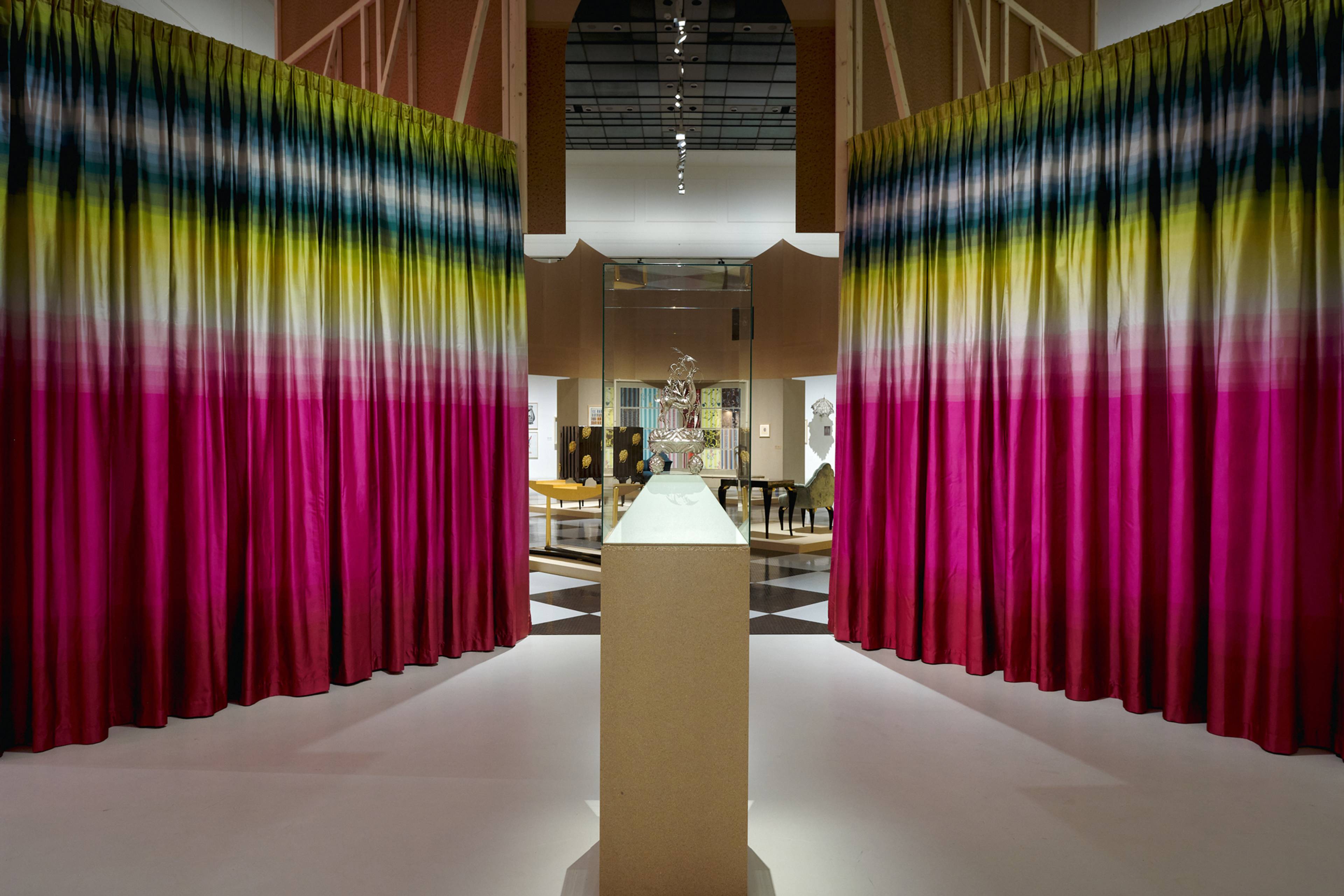
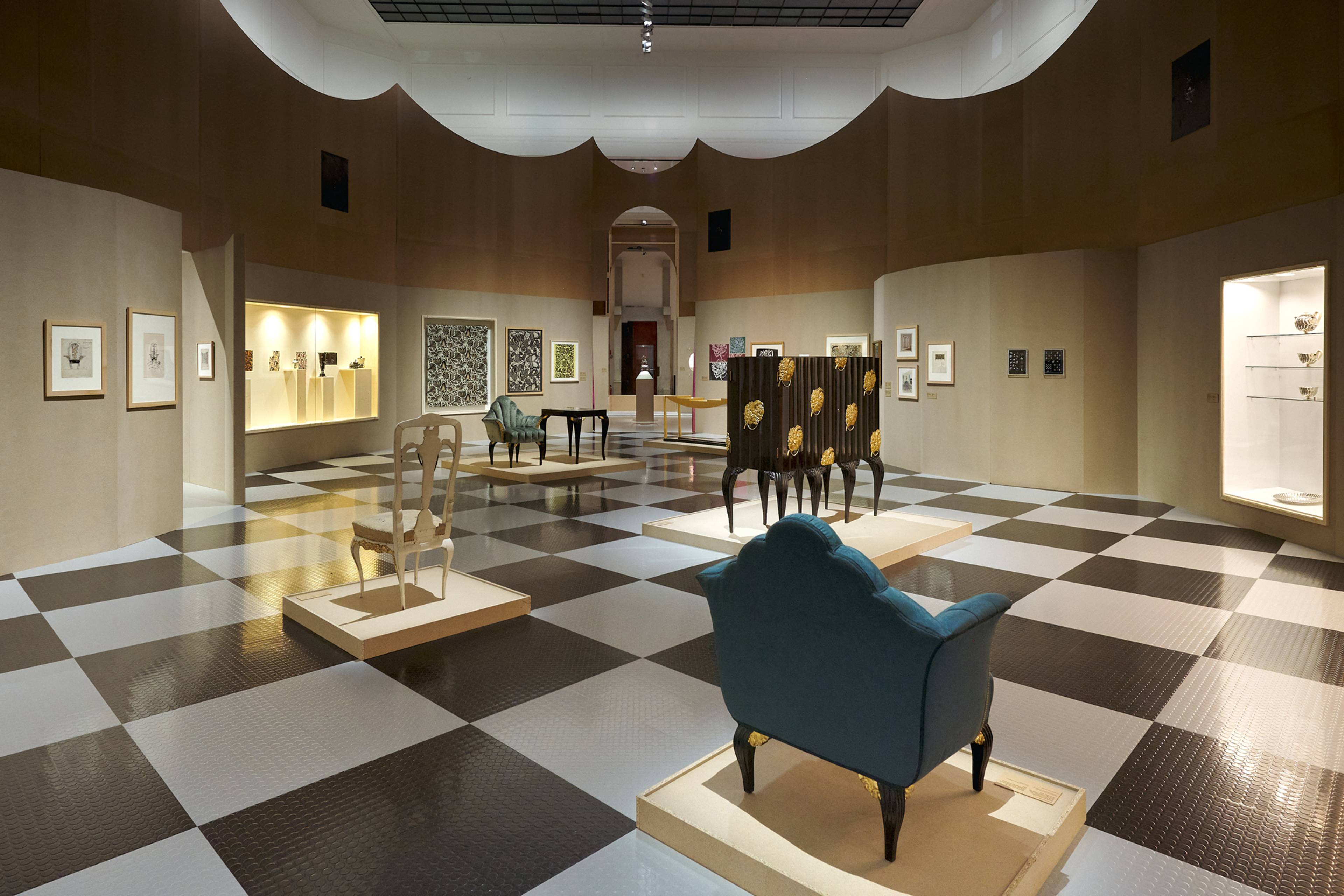
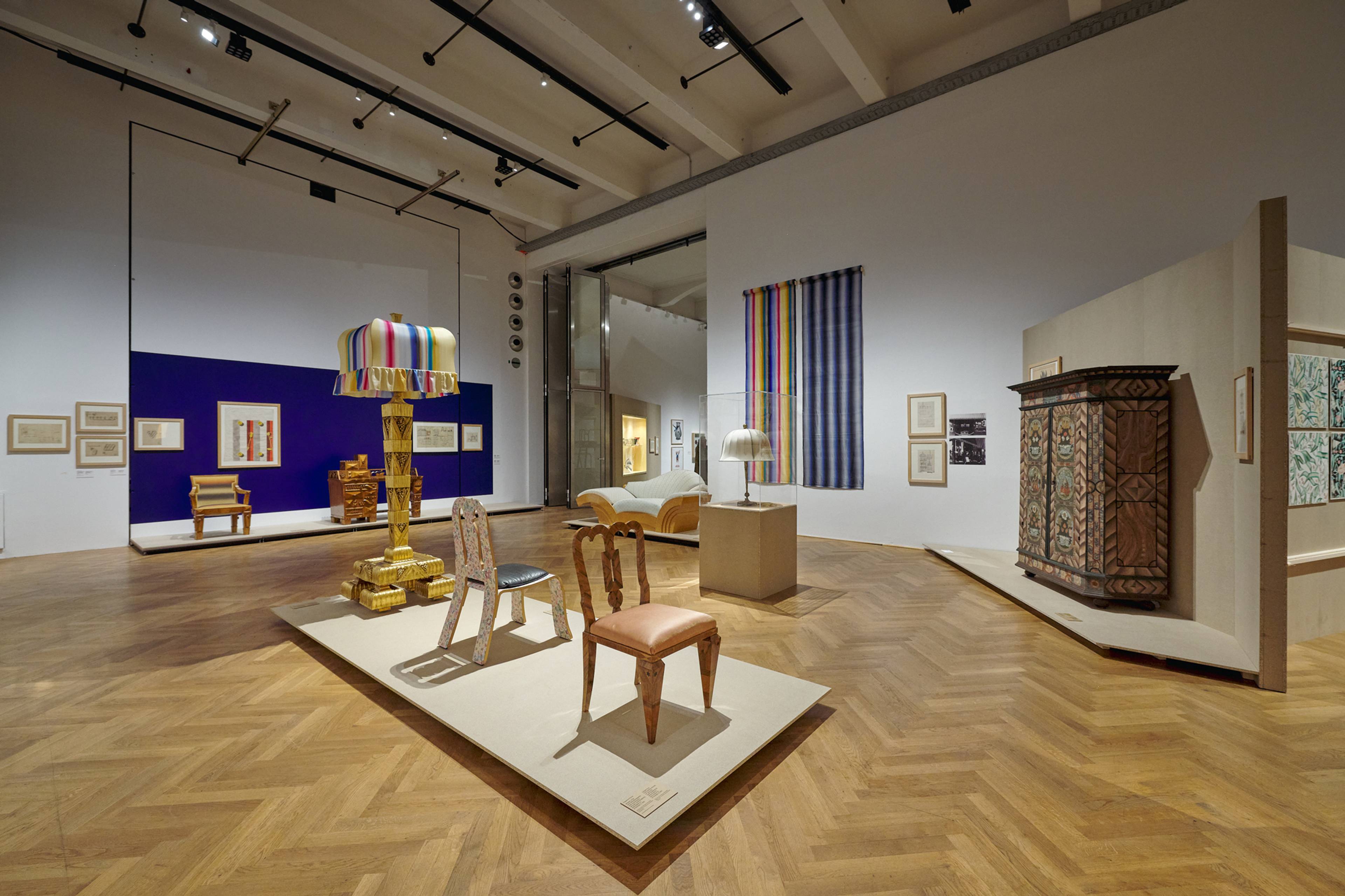
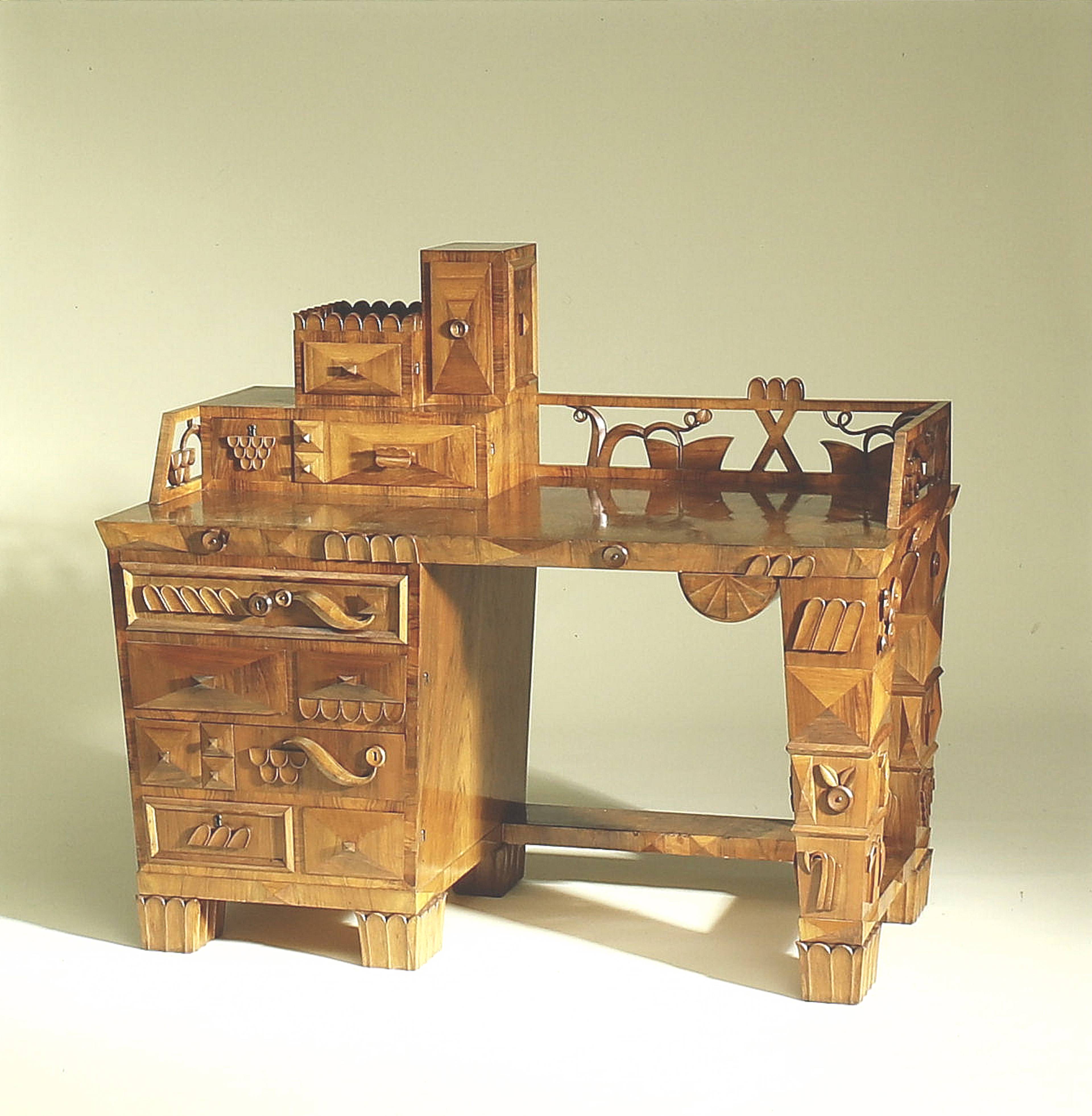
![Dagobert Peche, design for the Wiener Werkstätte wallpaper Pfeil [Arrow], 1921](https://cdn.sanity.io/images/syotmk9q/production/0c12ecd4df0ed2c2c46bea7d2fa540029e39e392-1429x2000.jpg?w=3840&q=70&fit=clip&auto=format)
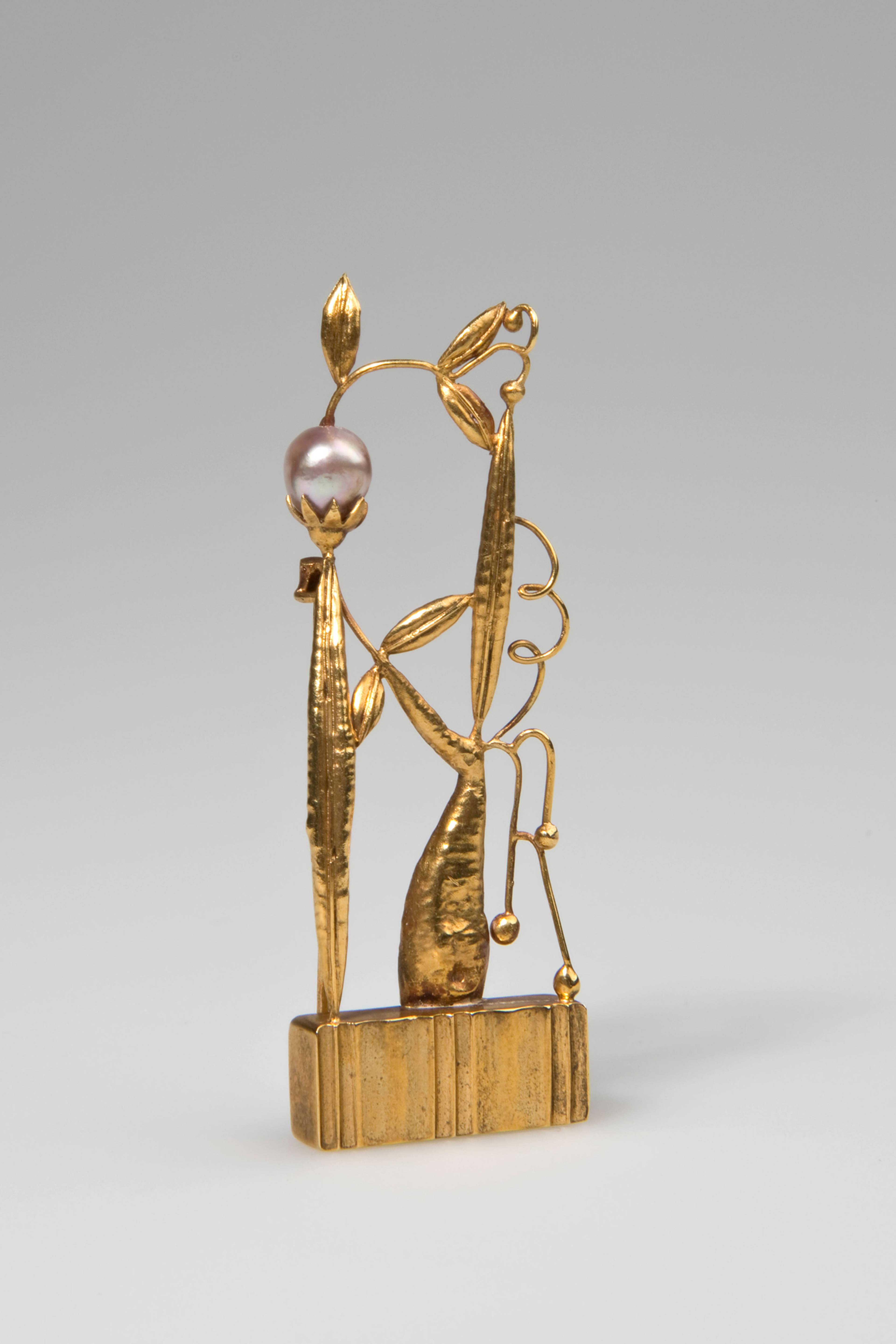
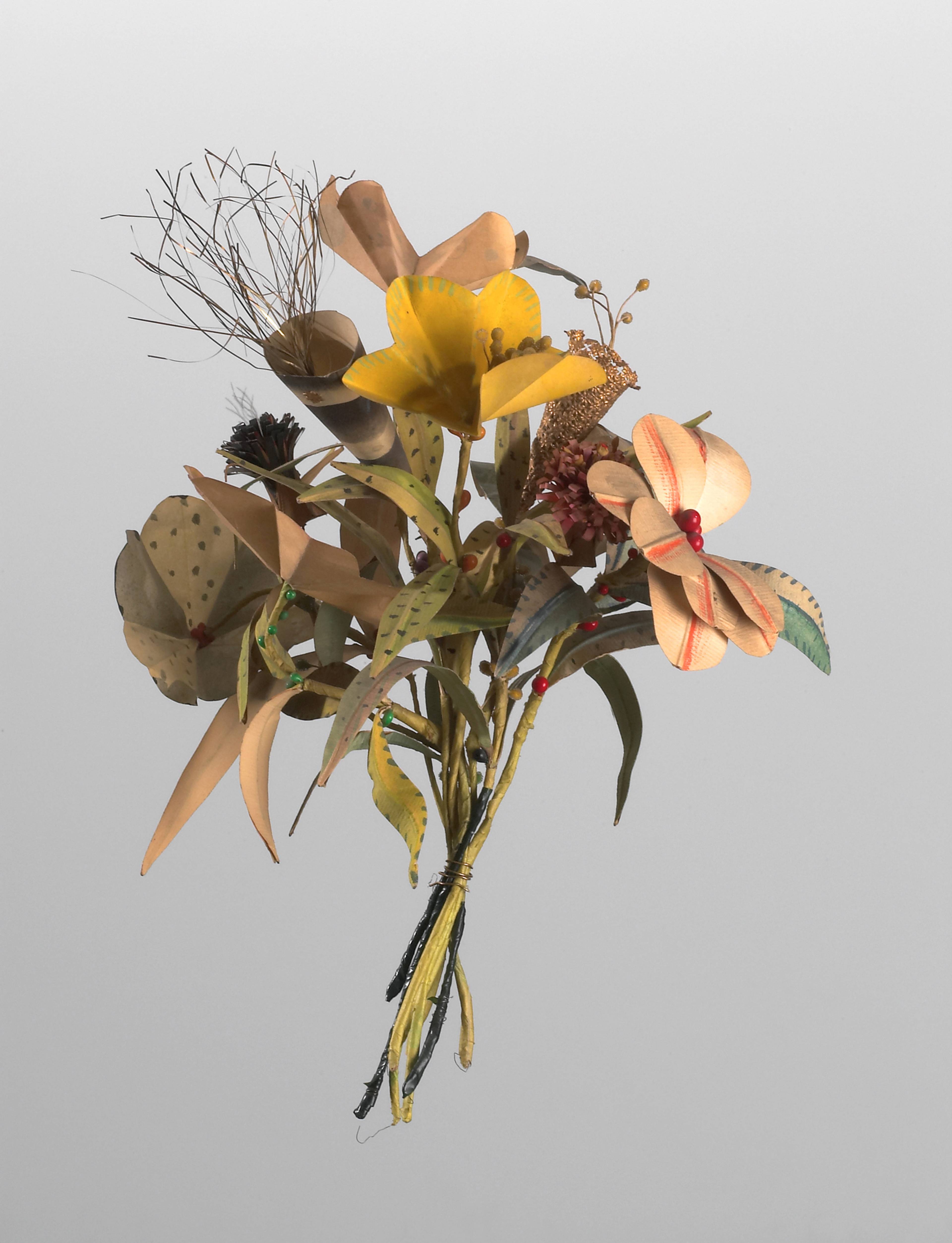
![Dagobert Peche, Vase Liebeszauber [Love Magic], 1922](https://cdn.sanity.io/images/syotmk9q/production/e52bd4382bfd07902940f4274acf206f3904a260-1333x2000.jpg?w=3840&q=70&fit=clip&auto=format)
